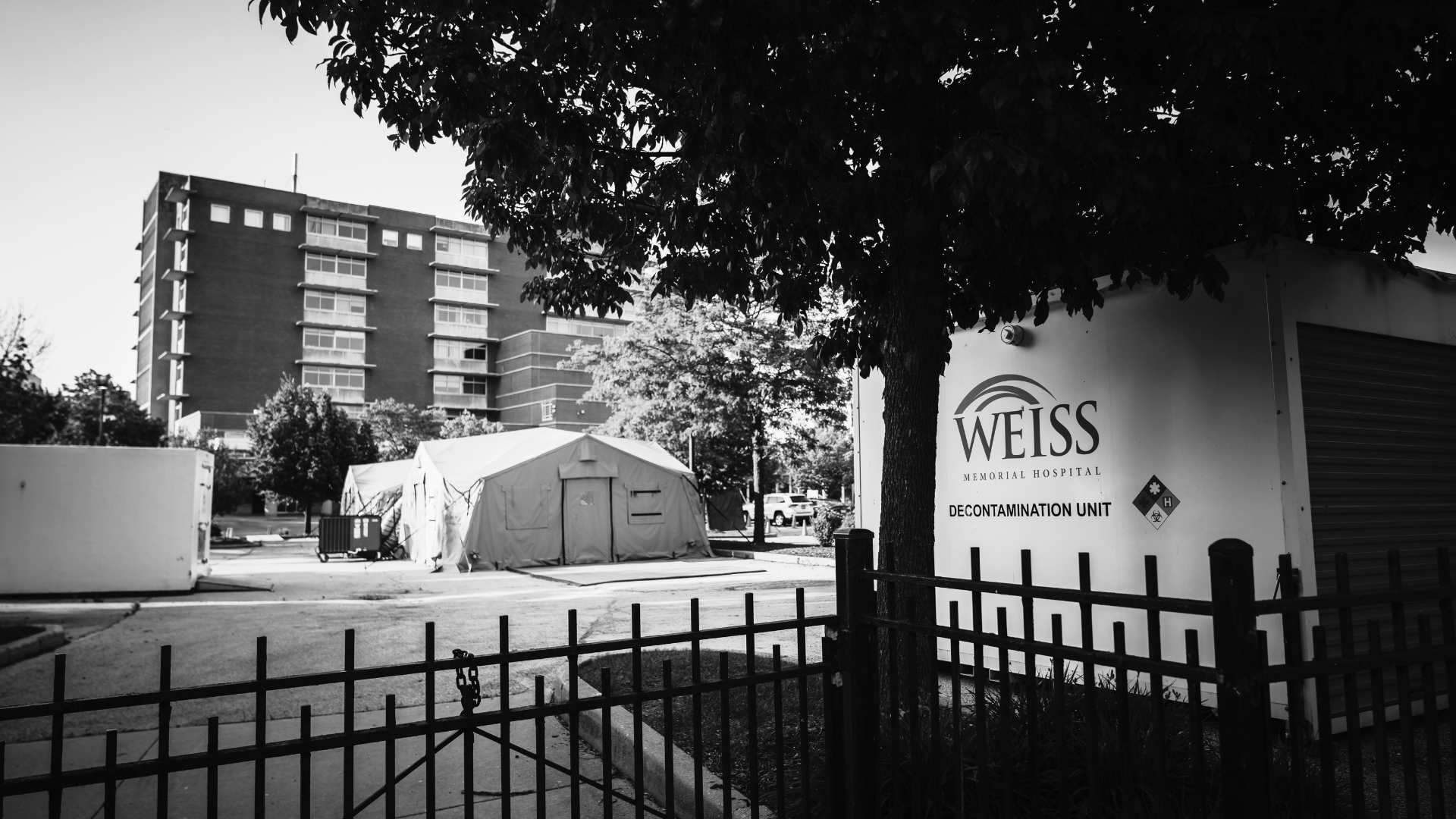
Another former Pipeline hospital closes
August 8, 2025
Another former Pipeline hospital closes — Weiss Memorial joins growing list of private equity casualties
Formerly owned by Pipeline Health, the hospital’s shutdown is the predictable result of allowing PE to profit from public health.
Chicago, IL — Today, Weiss Memorial Hospital, a critical safety net provider on Chicago’s North Side, ceased most operations. The hospital’s shutdown marks another loss for underserved communities and reflects the long-term consequences of private equity investment in healthcare.
Weiss Memorial was previously owned by Pipeline Health, a private equity-backed hospital chain whose financial practices were the focus of a 2023 report by the Private Equity Stakeholder Project (PESP), How Private Equity Raided Safety Net Hospitals: Volume 2—Pipeline Health. That report detailed how Pipeline’s owners engaged in extractive financial strategies that destabilized multiple hospitals in the Chicago area, including the closure of Westlake Hospital in 2019.
Weiss Memorial’s loss of Medicare funding sealed its fate. The Centers for Medicare and Medicaid Services (CMS) terminated Medicare funding due to the hospital “being out of compliance with federal standards with respect to emergency services, nursing services and physician environment” according to Becker’s Hospital Review.
State regulators approved Pipeline Health’s sale of Weiss Memorial and West Suburban Hospital to Resilience Healthcare in 2022. The transaction was structured so that Resilience would purchase the operations for just $1, and the real estate and land was sold for $92 million to a separate but affiliated holding company. Pipeline previously had sold Weiss Memorial Hospital’s parking lot to a real estate developer for $12 million despite immense community protest. The developer planned to build luxury apartments.
“This is what happens when you treat healthcare like a commodity,” said Mary Bugbee, Healthcare Director at the Private Equity Stakeholder Project. “Private equity firms like those behind Pipeline often load hospitals with debt and strip out valuable real estate, and then walk away—leaving community institutions so weakened they struggle to survive over the long term.”
The closure of Weiss Memorial Hospital is the latest example of the growing number of safety net hospitals failing after a period of private equity ownership. These institutions serve low-income, uninsured, and underinsured populations—communities that are disproportionately harmed when access to care is diminished.
“This is not just another hospital closing. It’s another breach in the safety net that is supposed to support the most vulnerable communities,” added Bugbee. “We are not surprised—but we are disheartened by this closure.”
PESP continues to track the long-term impacts of private equity in healthcare and calls on policymakers to address the systemic risks posed by financial firms operating in the sector. As more hospitals face financial distress following private equity control, the need for robust oversight and reform has become increasingly urgent.
